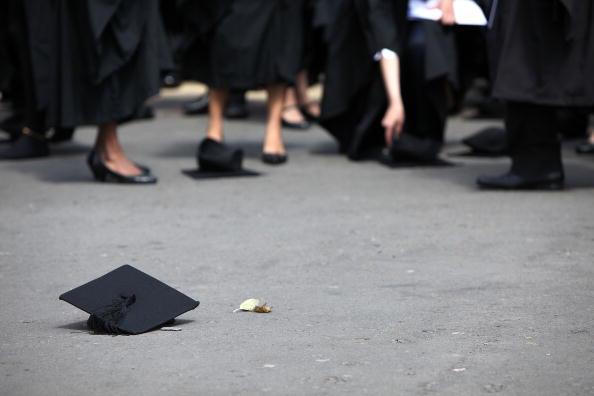The Independent's journalism is supported by our readers. When you purchase through links on our site, we may earn commission.
Parents should respect their children’s boundaries and newfound independence at university

As countless students head off on a new, albeit daunting, adventure every autumn, it’s easy to forget the abundance of physical space they leave behind for their parents and families. We students can explore new surroundings, meet new people, and try new things at university. Meanwhile, our parents are left in an empty household to sob into that one T-shirt we decided not to take.
University is the first real separation between parents and their children, meaning it’s quite easy for parents to develop ‘empty nest syndrome’ and become anxious about how we’ll manage to fend for ourselves. We’re left in a small, single-bed room, worrying over what our flatmates are going to be like, while our parents face a long drive home concerned about if we forgot to pack any vital cooking utensils, or know what temperature to wash our delicates on. They can no longer tend to us, which can give them a feeling of boredom or lack of purpose.
Cardiff University’s head counsellor, Sarah Worley-James, says the main impacts of family structural change are “feelings of loss” by both parents and siblings. She adds how these feelings may be intensified “if there were family difficulties or only one parent in the household,” as the student may have been a significant support to a parent or parents, and been a parental figure to younger siblings. A student leaving for university may also result in a “shift of focus onto younger siblings” who may or may not welcome this attention.
According to researchers at Bowling Green State University in Ohio, in 1990, fewer than one in ten individuals who divorced were 50 or older. Almost 20 years later, those same figures jumped to nearly one in four. This rise is the result of more students being able to go to university and parents no longer having the reason of staying together for the benefit of their children. Instead of letting a child’s absence cause a rift between parents, Sarah advises: “It can also be an opportunity for parents to refocus on their relationship as two adults, rather than the main focus being on their role as parents.”
A student leaving for university also has positive aspects for parents. It can open up more time for them to reconnect with previous hobbies and interests, or even begin new ones. Rather than having to be your personal chef, cleaner, and taxi driver, they can use their time to finally start using up that gym membership they’ve had for so long, or even go travelling. Similarly, more time could be dedicated to meeting up with friends or achieving more in the workplace.
According to a poll taken by Unite, the majority of 2,000 parents whose children had recently left home reported feeling ten years younger, had increased their number of friends, and had taken up new hobbies. Counsellor Sarah describes how a change in family structure can sometimes be mixed with feelings of relief and pleasure: “There may be feelings of relief that physical space has been created in the house, or feelings of pleasure that there is an increase in emotional support and attention towards other siblings.”
While it is important to remain in contact with their child, parents should also respect their boundaries and newfound independence. It’s always a good idea to arrange a time for weekly phone-calls or Skype chats, as it’s reassuring for a student to know they are still being supported. However, parents shouldn’t be too offended if their child is too busy to keep in constant contact, as they are probably busy getting to grips with living away from home, finding their bearings in a new place, and learning how to study at an entirely new level.
So, in the meantime, parents: just make sure you stay positive and await your child’s return in the holidays, where you will almost definitely be expected to cook for them and sort out all of their dirty laundry in no time.
Twitter: @KatieWeston1
Join our commenting forum
Join thought-provoking conversations, follow other Independent readers and see their replies
Comments
Bookmark popover
Removed from bookmarks